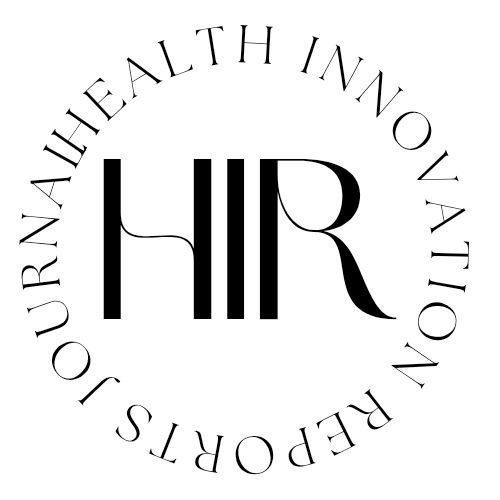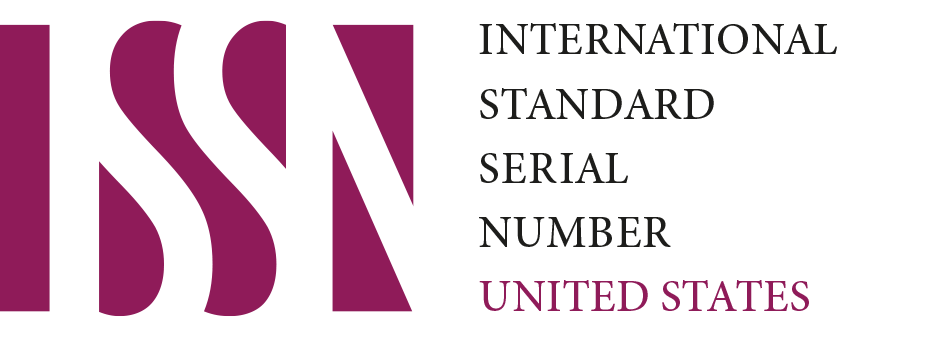Teachers’ Knowledge of Basic First Aid in Public, Private, and International Primary Schools in Erbil City, 2024–2025
DOI:
https://doi.org/10.64048/hir.v1n2.004الكلمات المفتاحية:
Basic first aid، Teachers’ knowledge، Primary schools، Training، Emergency management، Child safety، School healthالملخص
Background and Aim: In Erbil City, primary school teachers often face situations that require immediate first aid, yet their level of knowledge may vary depending on training, school type, and experience. This study aimed to assess the knowledge of basic first aid (BFA) among teachers in public, private, and international primary schools.
Method: This cross-sectional study was conducted from January 12th to June 21st, 2024, in 19 primary schools in Erbil City, including 10 public, 5 private, and 4 international schools, using systematic sampling method. A structured questionnaire was employed to gather data on demographic characteristics, BFA training background, emergency experiences, and knowledge of first aid across domains such as CPR, choking, trauma management, and general emergencies. Statistical analysis was performed using SPSS version 20 (IBM Corp., Armonk, NY, USA). Descriptive statistics were used, and Chi-square tests were applied to assess associations between knowledge levels and demographic or training variables.
Results: A total of 264 teachers participated, of whom 39.0% were from public schools, 38.6% from private schools, and 22.3% from international schools. Overall, 35.6% of teachers had attended BFA training, with those trained achieving significantly higher knowledge scores than untrained teachers (p < 0.001). The mean knowledge score was 6.78 ± 2.86, indicating a fair level of knowledge overall. Training type and frequency were strongly associated with knowledge level, while gender was not significant. Younger teachers and those with more years of training showed better performance in cardiac, choking, trauma, and general emergency domains.
Conclusions: The study demonstrated that primary school teachers in Erbil generally had fair knowledge of basic first aid, with training being the strongest predictor of higher knowledge. Expanding practical and theory-based training programs is essential to equip teachers with adequate first aid skills, ensuring student safety and effective management of school emergencies.
التنزيلات
المراجع
AKHAGBAKER, J. M., KAREEM, M. S., RASOOL, A. A., SABER, A. F., AZIZ, K. F. & KAREEM SR, M. S. 2024. Assessment of knowledge and practice regarding psychological first aid among secondary school students in Erbil City. Cureus, 16. https://doi.org/10.7759/cureus.64671
AL-HAJJ, S., NEHME, R., HATOUM, F., ZHENG, A. & PIKE, I. 2020. Child school injury in Lebanon: A study to assess injury incidence, severity and risk factors. PLoS one, 15, e0233465. https://doi.org/10.1371/journal.pone.0233465
ALAHMED, Y. S., ALZEADI, H. S., ALGHUMAYZI, A. K., ALMARSHAD, L. A., ALHARBI, A. S., ALHARBI, A. S., ALAHMED, Y., ALGHUMAYZI, A., ALMARSHAD, L. & ALHARBI, A. 2023. Knowledge and attitudes of first aid and basic life support among public school teachers in Qassim, Saudi Arabia. Cureus, 15. https://doi.org/10.7759/cureus.42955
ALEMU, M., KIND, V., BASHEH, M., MICHAEL, K., ATNAFU, M., KIND, P. & RAJAB, T. 2021. The knowledge gap between intended and attained curriculum in Ethiopian teacher education: identifying challenges for future development. Compare: A Journal of Comparative and International Education, 51, 81-98. https://doi.org/10.1080/03057925.2019.1593107
ALSULAMI, M. 2023. First-aid knowledge and attitudes of schoolteachers in Saudi Arabia: a systematic review. Risk Management and Healthcare Policy, 769-777. https://doi.org/10.2147/RMHP.S395534
BOU-KARROUM, L., EL-JARDALI, F., JABBOUR, M., HARB, A., FADLALLAH, R., HEMADI, N. & AL-HAJJ, S. 2022. Preventing unintentional injuries in school-aged children: a systematic review. Pediatrics, 149, e2021053852J. https://doi.org/10.1542/peds.2021-053852J
BRITO, J. G., OLIVEIRA, I. P. D., GODOY, C. B. D. & FRANÇA, A. P. D. S. J. M. 2020. Effect of first aid training on teams from special education schools. Revista brasileira de enfermagem, 73, e20180288. https://doi.org/10.1590/0034-7167-2018-0288
CLARKE-VIVIER, S. & LEE, J. C. 2018. Because Life Doesn't Just Happen in a Classroom: Elementary and Middle School Teacher Perspectives on the Benefits of, and Obstacles to, Out-of-School Learning. Issues in Teacher Education, 27, 55-72.
EARLY, E., MILLER, S., DUNNE, L., THURSTON, A. & FILIZ, M. 2020. The influence of socio‐economic background and gender on school attainment in the United Kingdom: A systematic review. Review of Education, 8, 120-152. https://doi.org/10.1002/rev3.3175
FURST, J. 2018. The Complete First Aid Pocket Guide: Step-by-Step Treatment for All of Your Medical Emergencies Including• Heart Attack• Stroke• Food Poisoning• Choking• Head Injuries• Shock• Anaphylaxis• Minor Wounds• Burns, Simon and Schuster.
GALWAY, U., WANG, M., DEEBY, M., ZURA, A., RITER, Q. & ABDELMALAK, B. 2023. Recognition and management of the difficult airway—a narrative review and update on the latest guidelines. Journal of Oral and Maxillofacial Anesthesia, 2. https://doi.org/10.21037/joma-23-3
GANFURE, G., AMEYA, G., TAMIRAT, A., LENCHA, B. & BIKILA, D. 2018. First aid knowledge, attitude, practice, and associated factors among kindergarten teachers of Lideta sub-city Addis Ababa, Ethiopia. PloS one, 13, e0194263. https://doi.org/10.1371/journal.pone.0194263
GEREIGE, R. S., GROSS, T., JASTANIAH, E., HEALTH, C. O. S. & MEDICINE, C. O. P. E. 2022. Individual medical emergencies occurring at school. Pediatrics, 150, e2022057987. https://doi.org/10.1542/peds.2022-057987
ILO, P. I., IZUAGBE, R., MOLE, A. J. & EKWUEME, L. 2018. Measuring disaster preparedness and response practices in university libraries in Nigeria: The role of disaster equipment. International Journal of Disaster Risk Reduction, 31, 85-91. https://doi.org/10.1016/j.ijdrr.2018.04.007
KALDAROVA, A., KULGILDINOVA, T., BERDENOVA, S., ZAKIROVA, G. & ZHANABAYEVA, S. 2024. Subject-Related Communicative Language Competence: Exploring Future Information Technology Specialists' Learning and Teaching. Journal of Education and e-Learning Research, 11, 26-35. https://doi.org/10.20448/jeelr.v11i1.5288
KLEINMAN, M. E., PERKINS, G. D., BHANJI, F., BILLI, J. E., BRAY, J. E., CALLAWAY, C. W., DE CAEN, A., FINN, J. C., HAZINSKI, M. F. & LIM, S. H. 2018. ILCOR scientific knowledge gaps and clinical research priorities for cardiopulmonary resuscitation and emergency cardiovascular care: a consensus statement. Circulation, 137, e802-e819. https://doi.org/10.1161/CIR.0000000000000561
MCBRAYER, J. S., TYSINGER, D., TYSINGER, J., DIAMANDUROS, T. & FALLON, K. 2020. Keeping our schools safe: examining perceptions of crisis frequency and preparedness of educators in a statewide online charter school. Journal of Online Learning Research, 6, 107-128.
MENDOZA, D., JUNIOR, M. A., MARALIT, K. M. T. & ODELLO, C. R. 2023. First Aid Skills of Pre-Service Physical Education Teachers at Batangas State University. Physical Education and Sports: Studies and Research, 2, 83-99. https://doi.org/10.56003/pessr.v2i2.208
MERAL, B. & KOBYA BULUT, H. 2024. Applications to Emergency Medical Services from Schools: a Retrospective Study. JOURNAL OF COMPLEMENTARY MEDICINE RESEARCH, 15.
MINNA, S., LEENA, H. & TOMMI, K. 2022. How to evaluate first aid skills after training: a systematic review. Scandinavian journal of trauma, resuscitation and emergency medicine, 30, 56. https://doi.org/10.1186/s13049-022-01043-z
NANASSY, A. D., GRAF, R. L., BUDZISZEWSKI, R., THOMPSON, R., ZWISLEWSKI, A., MEYER, L. & GREWAL, H. 2020. Stop the bleed: The impact of a basic bleeding control course on high school personnel’s perceptions of self-efficacy and school preparedness. Workplace health & safety, 68, 552-559. https://doi.org/10.1177/2165079920930730
NEYIŞCI, N. 2024. Emergency response competencies strengthened by sustainable education: first aid training program for teachers. Sustainability, 16, 8166. https://doi.org/10.3390/su16188166
OSEGBUE, G. C. 2025. Crisis intervention and response in educational institutions: developing and implementing plans in developing countries. African Journal of Educational Management, Teaching and Entrepreneurship Studies, 15.
PARADA-ESPINOSA, J. M., ORTEGA-GÓMEZ, S., RUIZ-MUÑOZ, M. & GONZÁLEZ-SILVA, J. Teaching Methodologies for First Aid in Physical Education in Secondary Schools: A Systematic Review. Healthcare, 2025. MDPI, 1112. https://doi.org/10.3390/healthcare13101112
PETERS, L., LONG, B. & EDDY, E. 2019. Identifying and evaluating gaps in knowledge, skills, and qualities necessary for a career in academia. Currents in Pharmacy Teaching and Learning, 11, 1111-1116. https://doi.org/10.1016/j.cptl.2019.07.012
RURY, J. L. & HURST, J. 2022. The segmentation of teacher professionalisation: The American experience. The Status of the Teaching Profession. Routledge. https://doi.org/10.4324/9781003042563-3
SHAH, A. A., GONG, Z., PAL, I., SUN, R., ULLAH, W. & WANI, G. F. 2020. Disaster risk management insight on school emergency preparedness–a case study of Khyber Pakhtunkhwa, Pakistan. International Journal of Disaster Risk Reduction, 51, 101805. https://doi.org/10.1016/j.ijdrr.2020.101805
STROMQUIST, N. P. 2018. The global status of teachers and the teaching profession. Education International.
TABER, K. S. 2018. The use of Cronbach’s alpha when developing and reporting research instruments in science education. Research in science education, 48, 1273-1296. https://doi.org/10.1007/s11165-016-9602-2
WEI, W., NIELSEN, M. S., NIELSEN, A. B., HAN, Y., RUSSELL, L., KONGE, L. & COLD, K. M. 2024. Hands-on Distance Simulation of Technical Skills: A Systematic Review. Simulation in Healthcare, 10.1097. https://doi.org/10.1097/SIH.0000000000000881
WOTIPKA, C. M., NAKAGAWA, M. & SVEC, J. 2018. Global linkages, the higher education pipeline, and national contexts: The worldwide growth of women faculty, 1970–2012. International Journal of Comparative Sociology, 59, 212-238. https://doi.org/10.1097/SIH.0000000000000881
التنزيلات
منشور
خطاب توفر البيانات
The data that support the findings of this study are available from the corresponding author upon reasonable request.
إصدار
القسم
الرخصة
الحقوق الفكرية (c) 2025 Jawdat Mamand Alhagbaker

هذا العمل مرخص بموجب Creative Commons Attribution 4.0 International License.
All articles published in Health Innovation Reports are licensed under the Creative Commons Attribution 4.0 International License (CC BY 4.0). This means anyone is free to share and adapt the work, provided proper attribution is given to the original authors and source.















